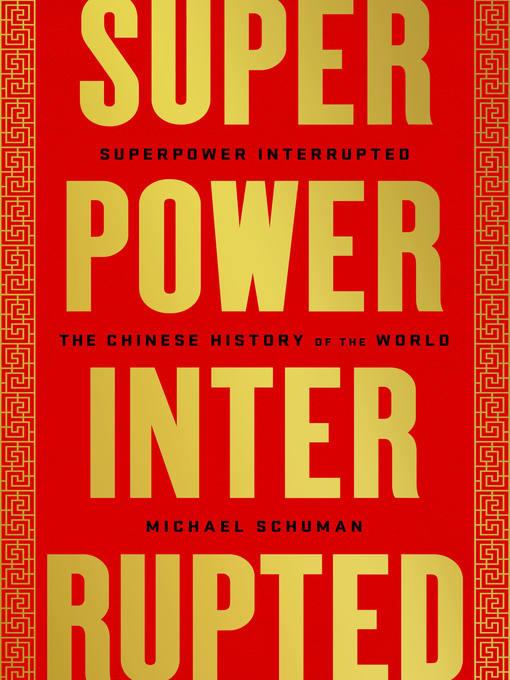
Superpower Interrupted
The Chinese History of the World
کتاب های مرتبط
- اطلاعات
- نقد و بررسی
- دیدگاه کاربران
نقد و بررسی

May 1, 2020
Business journalist Schuman, who has more than 20 years of experience in Asia, takes a big-picture look at the reemergence of China as a leading power. A superpower projects its influence through numerous vehicles. One is military. More important, though, are economic and cultural influences--e.g., the primacy of the dollar as a unit of international exchange, the dominance of English as a lingua franca. China's ascent is no surprise: Schuman writes that the nation, "for nearly its entire history," has commanded all these vehicles. For much of world history, it has been the dominant power in its region, has controlled trade networks extending all the way to Europe, and been a technological innovator. "Recall that when Christopher Columbus sailed into the unknown he was not searching for Mexico, but China," he adds. Numerous injuries inflicted on a tottering political regime in the 19th century, among them the Opium Wars, brought China under foreign control and reduced its influence, but many Chinese now, under Xi Jinping, believe that the time has arrived to reclaim Chinese hegemony. Schuman offers a lucid crash course in Chinese history and some of its more noted political and economic thinkers, from Confucius to King Wu and Liang Qichao, the last of whom counseled that China would not flourish until its "common people participated in the process of governing." That has yet to happen, but it is inarguable that since the 1980s, with Deng Xiaoping's reopening of the nation to international trade--"among the most momentous events of modern times," Schuman rightly notes--China has become wealthy, and if it still relies on other nations (especially the U.S.) for technological innovations, it is taking an ever larger role on the world stage in a way that it has not for half a millennium: "Xi himself appears a reincarnation of the empire-building emperors of old," Schuman concludes. Of considerable interest to students of world trade, geopolitics, and history.
COPYRIGHT(2020) Kirkus Reviews, ALL RIGHTS RESERVED.

May 25, 2020
Journalist Schuman surveys more than 3,000 years of Chinese civilization in his incisive and approachable debut. Documenting the rise of the Shang dynasty around 1600 CE, the building of the original Great Wall under the Qin dynasty (221–206 CE), the “golden era” of the Tang dynasty (618 BCE–907 BCE), and the launching of 400-foot-long “treasure ships” bearing porcelain and silk to Africa, India, and the Middle East in the 15th century, Schuman highlights “the Chinese self-belief in their own exceptionalism” and the autocratic impulse running throughout Chinese political history. From the Chinese perspective, Schuman writes, losing “superpower status” during the mid-19th century was a “mere blip” in the historical record. He sees the resurrection of Chinese cultural traditions under President Xi Jinping as a replacement for the “communist utopia” that was promised but never delivered, and argues that until the country can reclaim its technological superiority over the West, it will fall short of its goal to return to the top of the global order. Schuman cuts through the cavalcade of names, places, and events with an amiable sense of humor (“After all, barbarians will be barbarians”), though he doesn’t break much new ground in analyzing Chinese geopolitical ambitions. Still, this brisk chronicle delivers meaningful context for readers looking to go beyond the daily headlines about China.

























دیدگاه کاربران